The Friday Edition
Our Friday News Analysis | What the World Reads Now!
Helping to Heal a Broken Humanity (Part 35)
The Hague, 9 May 2025 | If you know of a decisive story, tell the world! We're still searching.
Sir David Attenborough holds on to what he calls the "most remarkable discovery of all" – that the ocean can "recover faster than we had ever imagined".

ATTENBOROUGH AT 99 DELIVERS 'GREATEST MESSAGE HE'S EVER TOLD'
Justin Rowlatt
Climate Editor•@BBCJustinR
BBC
6 May 2025
Annotated by Abraham A. van Kempen
Sir David Attenborough is launching what he says is one of the most important films of his career as he enters his hundredth year.
He believes his film Ocean could help save biodiversity and protect the planet from climate change.
Nearing 99, Sir David says: "After almost 100 years on the planet, I now understand the most important place on Earth is not on land, but at sea."
The film argues that the ocean supports the planet and is humanity's ally against climate disaster. It shows that the world's oceans are at a crossroads.
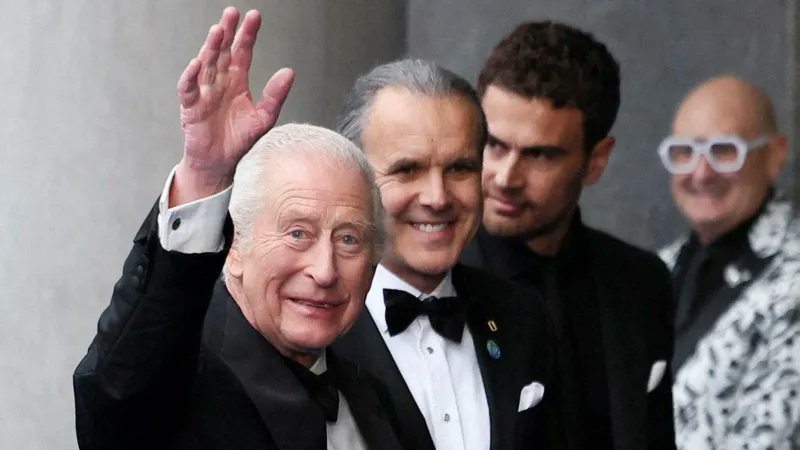
The blue carpet was rolled out for the Royal Festival Hall premiere in London.
The King told Sir David he "can't believe" his 99th birthday was Thursday. The pair posed for photos before entering the auditorium for the screening.
Celebrities attending included singer Geri Halliwell-Horner, astronaut Tim Peake, singer James Blunt, and model Cara Delevingne.
Prince William attended a matinee "in a private capacity" with hundreds of children from schools nationwide.
Toby Nowlan, producer of Ocean, states this production isn't a typical Attenborough film. "This is not about seeing brand new natural history behaviours. It is the greatest message he's ever told," he says.
The film documents changes in the oceans and our understanding of them during Sir David's lifetime.
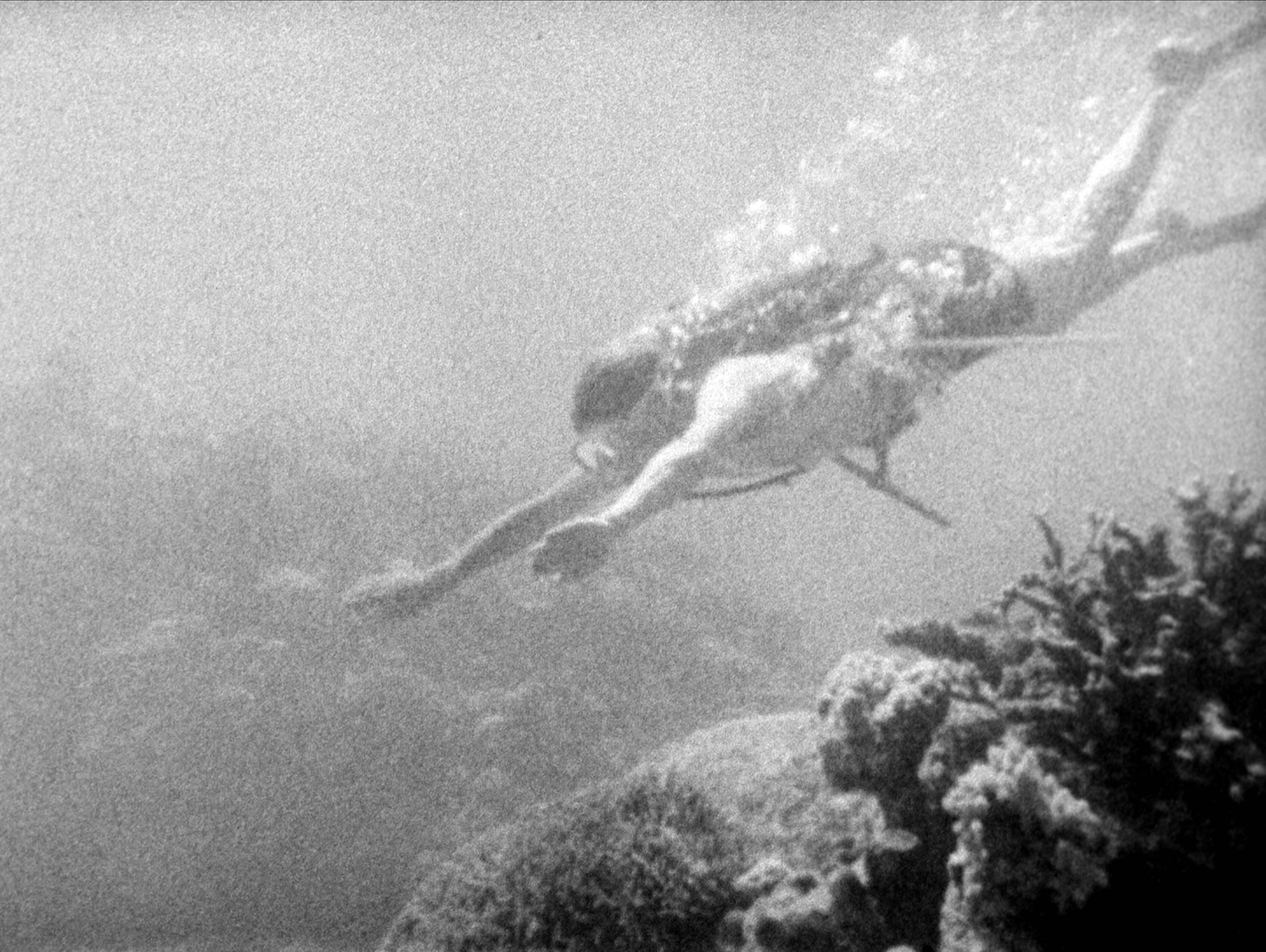
Sir David’s first scuba dive in Australia, 1957
Sir David recalls his first scuba dive on the Great Barrier Reef in 1957: "The spectacle so took me aback before me that I forgot momentarily to breathe." Since then, life in the world's oceans has catastrophically declined. "We are almost out of time," he warns.
Ocean contains some of the most graphic footage of the damage that bottom trawling—a typical fishing practice worldwide—can do to the seabed. Sir David claims it is a vivid example of how industrial fishing can drain life from the world's oceans.
The new footage shows the chain dragged by trawlers scouring the seafloor and forcing disturbed creatures into their nets. Often, they seek a single species, discarding over three-quarters of their catch.
"It's hard to imagine a more wasteful way to catch fish," comments Sir David.
The process releases carbon dioxide, contributing to planetary warming, yet bottom trawling is legal and actively encouraged by many governments.
Sir David says the ocean's state nearly made him lose hope for the planet's future. However, he holds on to what he calls the "most remarkable discovery of all" – that the ocean can "recover faster than we had ever imagined".
Sir David finds the narrative of the world's whales to be a significant source of hope.
An estimated 2.9 million whales were killed by the whaling industry in the 20th century, the most significant cull of any animal in history by total biomass, pushing nearly all whale species to the brink of extinction.
Only one per cent of Blue Whales remained, recalls Sir David: "I remember thinking that was it. There was no coming back; we had lost the great whales."
Due to public pressure, lawmakers banned commercial whaling worldwide in 1986. The whale population has since rapidly recovered.
Keith Scholey, one of the film's directors, has collaborated with Sir David for 44 years. "When I first met David, I was in shorts," he jokes. That was in 1981, two years after Sir David resigned as the BBC's director of programmes. "He'd done one career and was off on his next."
Scholey says Sir David remains energetic at nearly 99. "Every time you work with David, you learn something new," he adds. It's good fun, but David keeps you on your mettle because he constantly engages in the creative process."
Dolphins swimming over a coral reef
Sir David's key message is that all is not lost. Countries have pledged to protect a third of the world's oceans. He hopes his film will motivate leaders to act on this promise at next month's UN conference.
He believes it could be transformational.
"The ocean can bounce back to life," Sir David says. "If left alone, it may recover and thrive beyond anyone has ever seen."
According to scientists, a healthier ocean ecosystem can trap more carbon dioxide, helping protect the world from climate change.
"In front of us is a chance to protect our climate, food, and home," says Sir David.
As he celebrates his 99th birthday this week, he continues to fight for the natural world he has dedicated his life to showcasing.
Ocean opens in cinemas on Thursday.
What is the Side of the Story that is Not Yet Decisive? Edited by Abraham A. van Kempen
PROF. JOHN MEARSHEIMER: CAN NETANYAHU CONQUER GAZA?
Will Turkey and Egypt permit Netanyahu to conquer Gaza? Does Israel possess the capability? Will President Trump make a deal and honor his commitment?

Watch the Video Here (28 minutes, 55 seconds)
Host Judge Andrew Napolitano
Judging Freedom
8 May 2025
COL. LAWRENCE WILKERSON: IS TRUMP FOR PEACE?
Enough! Is there method to madness? War has its momentum. Let’s meet in Yalta and sort out lies.

Watch the Video Here (26 minutes, 13 seconds)
Host Judge Andrew Napolitano
Judging Freedom
8 May 2025
PEPE ESCOBAR: YEMEN WINS BY A LANDSLIDE!
No one can win a war against the Yemenites? Poor planning in the Oval Office? The Houthis won in a landslide? How? For how long?

Watch the Video Here (23 minutes, 57 seconds)
Host Judge Andrew Napolitano
Judging Freedom
8 May 2025
PHIL GIRALDI [FORMER CIA]: THE ISRAEL FIRST ADMINISTRATION
Netanyahu infiltrates the White House. Who says?

Watch the Video Here (24 minutes, 35 seconds)
Host Judge Andrew Napolitano
Judging Freedom
7 May 2025
AARON MATÉ: NATO AND UKRAINE
Why the apocalyptic signals? Beating the drums of war? Money? Is Russia asking for too much?

Watch the Video Here (24 minutes, 15 seconds)
Host Judge Andrew Napolitano
Judging Freedom
7 May 2025
[SPECIAL] FMR. BRITISH DIPLOMAT TO RUSSIA - IAN PROUD: CAN EUROPE DEFEND UKRAINE?
Why the apocalyptic language? What’s going on? Why won’t Europe settle with Russia?

Watch the Video Here (25 minutes, 23 seconds)
Host Judge Andrew Napolitano
Judging Freedom
7 May 2025
PROF. JEFFREY SACHS: CAN THE KREMLIN TRUST TRUMP?
President Trump may signal with a straight face, “If peace is not achieved, Russia will push further into Ukraine, seizing Odesa and delving deeper into the nation.” Go figure!

Watch the Video Here (31 minutes, 38 seconds)
Host Judge Andrew Napolitano
Judging Freedom
7 May 2025
PROF. GILBERT DOCTOROW: LIVE FROM ST. PETERSBURG, RUSSIA!
Sanctions have altered sourcing, resulting in lower prices and better quality. Can you find California wine in Moscow? We live in a small, interconnected world with borderless ATM’s and credit cards.

Watch the Video Here (25 minutes, 00 seconds)
Host Judge Andrew Napolitano
Judging Freedom
7 May 2025
UKRAINE NEGOTIATIONS FAILED
Prof. Glenn Diesen with Scott Ritter, a former intelligence officer in the US Marine Corps and ex-UN Weapons Inspector, who explains why negotiations to resolve the Ukraine War are destined to fail.

Watch the Video Here (32 minutes, 52 seconds)
Host Prof. Glenn Diesen
Substack.com
02 May 2025
UKRAINE IS NOW TRUMP'S WAR
Prof. Glenn Diesen with Prof. John Mearsheimer and Journalist Alexander Mercouris
President Trump can no longer juggle the conflicting roles of the US as both a primary participant in the proxy war and a negotiator. He has started authorizing the shipment of weapons to Ukraine, undermining his assertion that this was merely “Biden’s war.
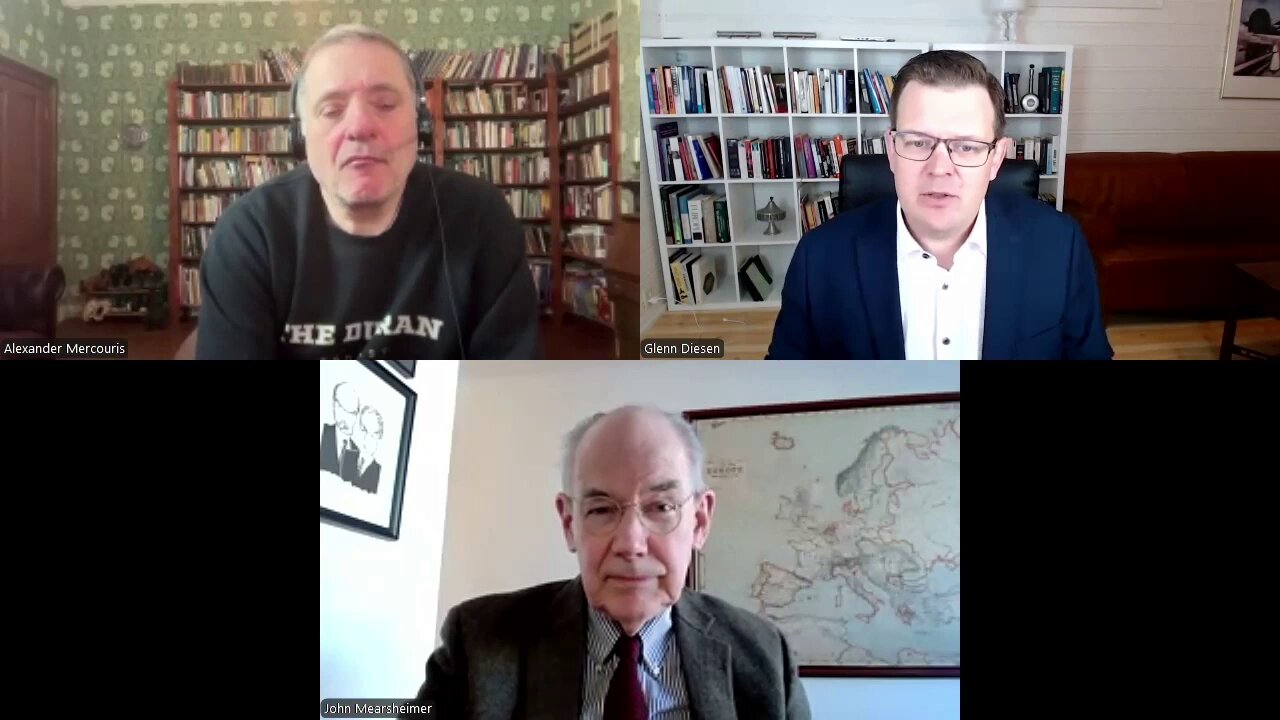
Watch the Video Here (1 hour, 13 minutes, 25 seconds)
Host Prof. Glenn Diesen
Substack.com
03 May 2025
CHINESE STATECRAFT AND A NEW WORLD ORDER
Prof. Glenn Diesen with Prof. Jeffrey Sachs
- Prof. Jeffrey Sachs is a world-renowned economics professor, a bestselling author, an innovative educator, and a leading figure in sustainable development.
- He explores the historical implications of the ongoing economic conflict between the US and China, signaling the end of centuries dominated by a Western-centered worldview.
- Prof. Sachs further examines the reasons behind the distinct differences between the Western geopolitical perspective and China.

Watch the Video Here (22 minutes, 04 seconds)
Host Prof. Glenn Diesen
Substack.com
03 May 2025
RACHEL MARSDEN | WHO DER LEYEN: THE EU HAS A MAJOR, UNFIXABLE PROBLEM WITH ITS FOREIGN POLICY
It must be quite a blow for Brussels elites when Washington suggests their most vaunted quality is not as good as they try to portray it.
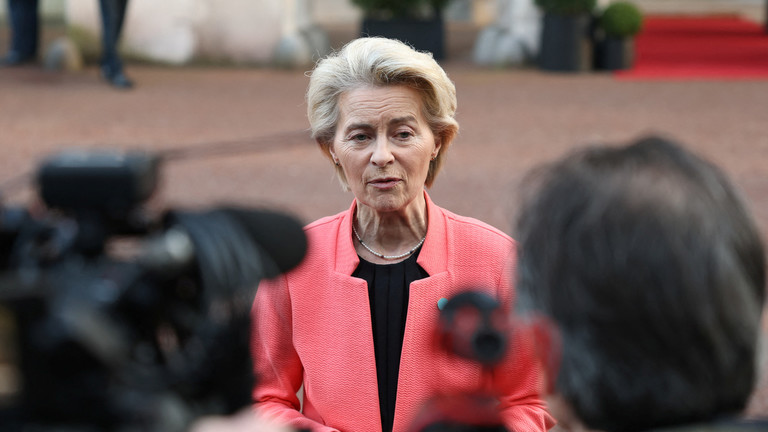
European Commission President Ursula von der Leyen. © Toby Melville - WPA Pool/Getty Images
7 May, 2025 13:26
HomeWorld News
Annotated by Abraham A. van Kempen
This one stings. When asked how the EU might dodge Trump’s tariffs, Treasury Secretary Scott Bessent said, "My observation... goes back to Kissinger’s statement: ‘When I call Europe, who do I call?’ So, we’re negotiating with different interests." Translation: You can’t sit with us until you stop fighting at your lunch table.
Sure, the continent is stumbling over its policies and tumbling down an economic staircase, but at least everyone’s falling in sync. Brussels tightens the “unity” straitjacket, and they all cheer or risk getting whacked back into line. Unity is the brand. Unity is the product. Unity is the hashtag.
“Only together can we address the grave challenges we face,” unelected European Commission President Ursula von der Leyen said in January 2024.
“Thanks to all this, Europe has weathered the fiercest storm in our economic history in the last five years. And we overcame an unprecedented energy crisis.
We did this together, and we can do it again. And we have the political will. Because when Europe is united, it gets things done,” she said in an address earlier this year at the Davos World Economic Forum, explaining how solidarity will help the EU weather the problems created by its policies.
“The EU’s strength lies in its unity during major health crises. European solidarity in sharing medical supplies, treating patients, and repatriating citizens helped us protect our citizens and overcome difficult phases of the pandemic,” she said in 2023 about the Covid fiasco, during which she brokered a non-transparent deal for jabs with her pal, the CEO of Pfizer, via vanished text messages. Contracts ultimately left EU member states on the hook even after they had no use for the jabs.

Read more
EU’s von der Leyen ‘beyond deplorable’ on Gaza – UN Rapporteur
“This 4th Ukraine meeting was another demonstration of European unity,” Queen Ursula posted a month ago on social media. Of course it was. What isn’t?
Even just this week, in evoking fires in Israel and EU assistance, she wrote on social media that it was “EU solidarity in action.”
Unity and solidarity are vital to the EU like family is for toddlers poking each other’s eyes out with crayons. As in, "you’re supposed to be brothers, so play nice!" This helps cover the history of family infighting.
Enter Scott Bessent, politely suggesting that he’s not impressed by the EU’s unity thirst traps.
And that strikes a chord. It’s like telling someone they believe their best attribute is their worst. For instance, imagine you take great pride in your butt, spending years at the gym doing every kind of squat, lunge, and hip thrust, only for someone you like to say, "You know, you should focus on those glutes more." This is precisely the sentiment behind Bessent’s remark when he points out that the EU's issue is its lack of unity.
He implies nothing the US can do about it – just friendly feedback.
Back to the gym, Brussels. Queen Ursula must be fuming since she thinks it’s her best feature and obsesses over it day and night. How can she do more when she’s maxed out on this unity obsession? It’s all superficial. Her unity-at-any-cost rhetoric means quashing dissent from countries that disagree. Those dissenters often share ideological views similar to Trump’s, prioritizing their country’s interests over those dictated by global governance institutions.
The Trump administration's brutal negging implies, "you’re not as hot as you think." They suggest working on oneself before reconnecting, framing it as a ‘YOU’ problem.
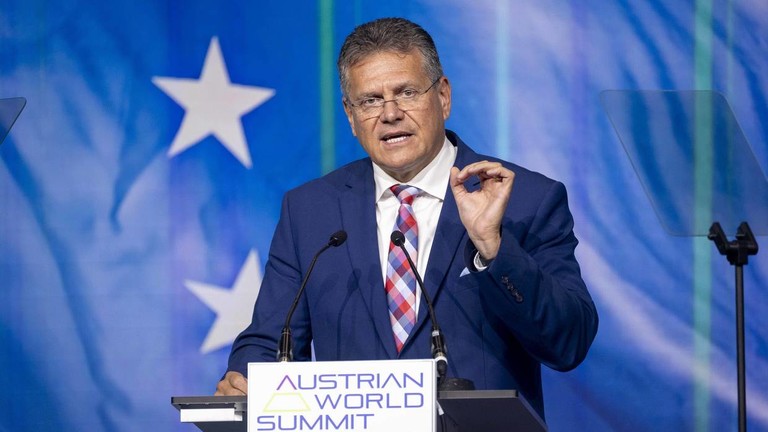
Read more
Brussels floats solution to Trump – FT.
Bessent highlighted the bloc's varying taxation on digital services. “We want to see that unfair tax on one of America’s great industries removed,” Bessent said. Ironically, they disagree on this, yet unite behind the Digital Services Act, which empowers “fact-checkers, civil society, and third-party organizations with specific expertise on disinformation” to keep EU internet users “safe and accountable.” On taxes, the EU is a jazz band; on censorship, a military parade.
Von der Leyen attempted to meet Trump at Mar-a-Lago before his inauguration but was ignored. Despite numerous calls, the White House ghosted her staff. When she finally met Trump in Rome at Pope Francis’ funeral, it was more like a celebrity sighting than a summit.
Word is that Trump told her they’d meet. Perhaps to get her to release his hand.
Why might Trump ignore Queen Ursula, who is unelected, unlike EU leaders? It could be due to her constant scolding. "Global markets are shaken by the unpredictable tariff policy of the US administration," von der Leyen said at a political gathering in Spain. "We cannot and will not allow this. We must double down on our hallmark policies of open markets, win-win trade, investment partnerships, and free and fair trade.”
Bessent’s “fix yourselves first” vibe aligns with Trump's VP J.D. Vance, who, according to the UK Independent, wants future trade deals tied to countries like the UK abandoning speech-curbing laws.
If the Trump doctrine prioritizes free nations over a globalist committee, then using trade to challenge authoritarian institutions makes sense.
THE TREATY THAT KEPT INDIA AND PAKISTAN IN CHECK IS GONE. NOW WHAT?
Days before India’s Operation Sindoor, Islamabad suspended the 1972 agreement with New Delhi, which was intended to establish lasting peace between the two neighbors.
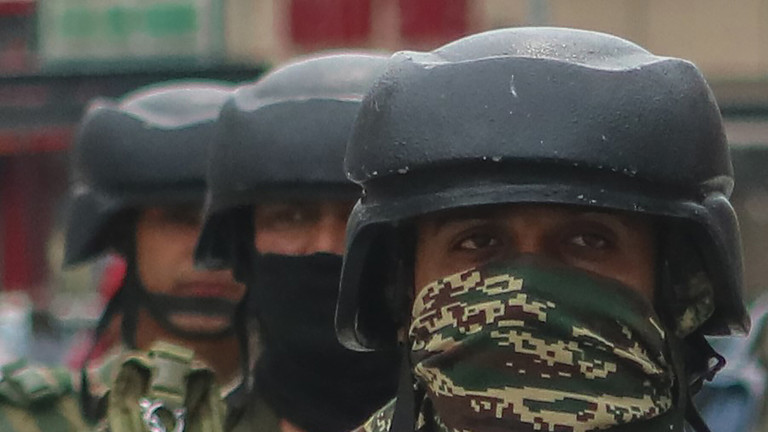
Indian paramilitary soldiers patrol near the Clock Tower (Ghanta Ghar) in Srinagar, Jammu and Kashmir, on May 2, 2025. © Firdous Nazir/NurPhoto via Getty Images
HomeIndia
7 May, 2025
Annotated by Abraham A. van Kempen
India launched ‘Operation Sindoor’ on May 7, targeting terrorist infrastructure in Pakistan in retaliation for a deadly attack in Pahalgram, Kashmir, last month. New Delhi confirmed it hit at least nine targets.
“Our actions have been focused, measured, and non-escalatory in nature. No Pakistani military facilities have been targeted. India has demonstrated considerable restraint in the selection of targets and method of execution,” the Indian government said in a statement.
Pakistan’s Prime Minister Shehbaz Sharif condemned the attacks as "cowardly" and stated that Islamabad "has every right to respond forcefully to this act of war imposed by India, and a forceful response is being given."
Tensions between India and Pakistan escalated to military actions after the killing of 26 vacationers in Pahalgam, Kashmir, by Pakistan-backed terrorists in a Hamas-style attack.
Pakistan Army and Inter Services Intelligence (ISI) links were established by India’s National Investigation Agency days after the mass killing. The public was angry and sought appropriate revenge.
Both nations announced diplomatic and economic measures after the attack. India has suspended the 1960 Indus Water Treaty (IWT) for the first time. Pakistan rejected this move, warning that any water diversion would be considered an ‘Act of War.’ Islamabad will also hold “in abeyance” its participation in all bilateral agreements with India, including the 1972 Simla Agreement.
Pakistan pledged a national power response to threats against its sovereignty, put its armed forces on high alert, and began selective mobilization. Most measures were expected. However, suspending the Shimla Agreement gave India a significant advantage.
What is the Shimla Agreement?
The Shimla Agreement between India and Pakistan was signed on July 2, 1972, at Barnes Court in Shimla, Himachal Pradesh, by Indian Prime Minister Indira Gandhi and Pakistani counterpart Zulfikar Ali Bhutto. It was ratified on July 15, 1972 (Pakistan) and August 3, 1972 (India), becoming effective the following day.

Read more
A decades-old deal is falling apart – and two nuclear neighbors are involved.
The agreement followed Pakistan’s defeat in the 1971 war, which led to the creation of independent Bangladesh.
The agreement stated: “The Government of India and the Government of Pakistan are resolved to end the conflict that has marred their relations and to promote a friendly relationship and durable peace in the sub-continent, allowing both countries to devote their resources to advancing the welfare of their peoples.”
The document aimed to establish a peaceful, stable relationship between the two nations. Both countries are resolved "to settle their differences by peaceful means through bilateral negotiations or by any other peaceful means mutually agreed upon between them.”
The treaty required the two countries to resolve issues bilaterally, replacing the UN resolution on Kashmir. Importantly, it established the Line of Control (LoC), previously the Ceasefire Line, as a quasi-border between India and Pakistan.
New Delhi persuaded Islamabad to rename the ceasefire line to the Line of Control (LoC), delinking it from the UN-imposed 1949 ceasefire and emphasizing that Kashmir is now a bilateral matter between India and Pakistan.
The treaty stated that Indian and Pakistani forces must withdraw to their respective sides of the “international border.” Both sides shall respect the LoC from the cease-fire of December 17, 1971, without prejudice to either side's recognized position in Jammu and Kashmir.
Despite differences, neither side shall alter it unilaterally. India returned about 13,000 square kilometers of land from the western border. Still, it kept strategic areas like Turtuk, Dhothang, Tyakshi, and Chalunka in Chorbat Valley, totaling over 883 square kilometers, to ensure lasting peace. Both sides agreed to refrain from threats or force against the LoC.
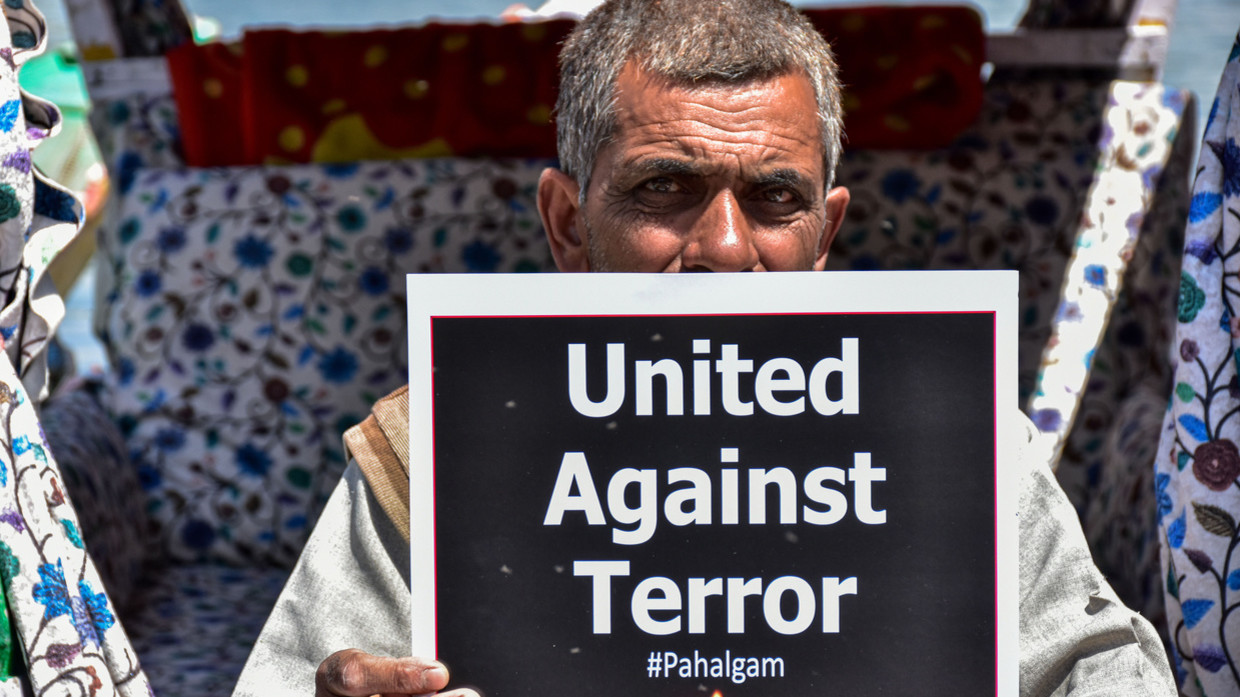
Read more
‘Our hearts bleed today’: How the terrorist attack shook fragile stability in Kashmir.
Only one limited war has occurred since the agreement was signed, reflecting its effectiveness.
Some Indian bureaucrats argued that a tacit agreement to convert this LoC into an international border was reached in a meeting between the two heads of government. Pakistani bureaucrats denied this, which was unacceptable to the Indian public.
The Shimla agreement urged both sides to resolve issues bilaterally. However, Pakistan ignored this, escalating matters internationally, particularly regarding Kashmir at the UN. A recent example is Pakistan’s reaction to the 2019 Abolition of Article 370 by the Modi-led government. A key clause stated that “both shall prevent the organisation, assistance or encouragement of any acts detrimental to the maintenance of peaceful and harmonious relations.”
Pakistan uses cross-border terrorism as a foreign policy tool to harm India and promote separatism in Kashmir while keeping the Indian Armed Forces occupied. Major Pakistan-sponsored attacks against India include: the December 13, 2001, assault on the Indian Parliament; the 2002 attack on the Akshardham temple; the 2003 Mumbai train blasts; 2005 twin blasts at the Gateway of India and Zaveri Bazaar; Delhi bombings; the 2006 Mumbai train bombings; 2008 train blasts in Jaipur; and the November 2008 Mumbai attacks. Recently, attacks in Kashmir included a deadly assault on an Army camp in Uri that killed 17 soldiers, and an attack on a military convoy in Pulwama that killed 40 personnel.
From then to now
Islamabad believes suspending the treaty allows it to bring issues to the UN or other bodies and invite third-party intervention in the India-Pakistan disputes. However, this suspension renders the LoC's sanctity open-ended, enabling either side to exploit and violate it for territorial gain unilaterally.
India has significant military power and advantages over Pakistan. In 1999, Pakistan attempted to breach the LoC, leading to the Kargil War, in which it suffered a humiliating defeat and high casualties. In 1984, Pakistan tried to seize the Siachen Glacier, an Indian territory per the Karachi agreement, prompting India to launch Operation Meghdoot, which resulted in full control of the glacier.
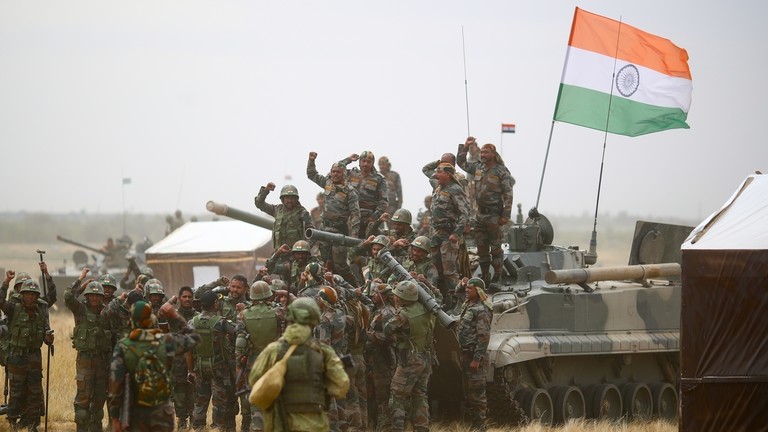
Read more
India is done playing nice. It’s time to punish Pakistan.
The suspension of the Simla Agreement allows New Delhi to use military options without treaty violations. India could target terrorist camps across the LoC to curb infiltration and regain critical territories like Haji Peer Pass, lost under international pressure. Additionally, India can establish buffer zones to enhance security along the Srinagar-Leh highway.
At the time of the treaty's signing, Pakistan enjoyed the backing of the West, especially the US, as Washington required Pakistan's assistance for its efforts against the Soviet Union in Afghanistan.
Since then, the world has been wooing India, a mature democracy with a robust economy and military power. Russia, Europe, the US, the Arab world, and China need India economically.
India can leverage its influence over major powers to isolate Pakistan. Notably, when the New York Times reported that tourists in Pahalgam were attacked by "militants in Kashmir," the US House Foreign Affairs Committee corrected the headline, calling the attackers "terrorists." Additionally, India’s improving ties with China are creating insecurity in Pakistan.
Peace and stability in question
The Shimla agreement did not prevent the deterioration of relations between the two countries, leading to armed conflict in the Siachen glacier and during the Kargil War in 1999.
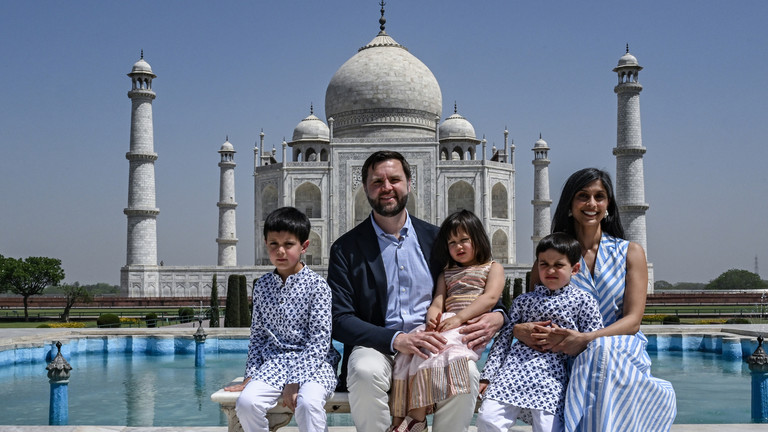
Read more
Vance’s India trip couldn’t have come at a stranger time.
Pakistan-sponsored terrorism has repeatedly breached the prerequisites for reconciliation, good neighborliness, and durable peace. Both sides were expected to refrain from threatening each other's territorial integrity or political independence, but this expectation has been violated. Pakistan's army has vowed to avenge the humiliating defeat and surrender of 93,000 non-disabled soldiers, “throwing peace into the wind.”
Pakistan's army has effectively controlled the country since 1947 but obstructed the treaty's intended normalization of relations. The Army’s authority stems from the nation’s insecurity, causing setbacks to travel, trade, and cultural exchanges. The treaty's suspension raises concerns about future peace and stability in the region, particularly along the LoC in Jammu and Kashmir.
The suspension could revive proxy warfare tactics that the Simla framework sought to curtail. While it may lack immediate tactical effects, it could increase diplomatic and military brinkmanship. Renewed hostilities or border instability might hinder development and democratic efforts in J&K post-Article 370 abrogation. The escalating conflict between two nuclear states has alarmed the international community, prompting calls for restraint and dialogue.
The Simla Agreement's suspension lets India recalibrate its security and diplomacy, reinforcing Pakistan’s re-listing in the Financial Action Task Force’s grey list.
By ignoring the Simla Agreement, Pakistan has helped India and Prime Minister Modi to reclaim Pakistan-occupied Kashmir, which the Indian political class supports. India has $680 billion in foreign exchange reserves, while Pakistan has $15 billion, leaving Pakistan unable to sustain conflict. The level of armed conflict will vary.
We must wait and watch as events unfold.
GUEST EDITORIAL | HOW THE NETANYAHU GOVERNMENT'S WAR ON GAZA IS KILLING ISRAEL'S FUTURE
Netanyahu's government views the Gaza war as 'existential,' and protesting its rising costs is seen as disloyalty. It's fitting that teachers, tasked with educating Israel's future but facing salary cuts, are now on strike.
Netanyahu speaking at Yad Vashem. Credit: Naama Grynbaum
By Dahlia Scheindlin
Haaretz | Israel News
7 May 2025
Annotated by Abraham A. van Kempen
Israel's government announced new plans to conquer Gaza as Israel's schoolteachers' union went on strike for several hours, a significant event that received less international attention.
The stories appear separate yet are intertwined: teachers protested salary cuts related to the Gaza war, in an already underpaid profession compared to the OECD average. Similar to a flat tax, rising prices for essentials erode the value of Israel's lower-level paychecks. Educators for tomorrow can't make ends meet today.
The strike was short-lived; after Israel's Labor Court ordered it shortened by an hour, it ended by 10 A.M. By Sunday evening, the union and education minister reached a tense compromise. However, many teachers, pushed to their limits, fell ill on Monday, leaving 217 schools closed, some still not recovered.
- Israel will pay a heavy price if it continues its campaign of death in Gaza.
- 'Let the IDF mow them down!" In Israel, violence saturates everyday life
- Israel believes it's fighting a holy war in Gaza, and dissenters are deemed heretics
Regardless of the deterioration in Israeli education as teachers face increased distress, the solutions—fair compensation for teachers, making the profession attractive, and guaranteeing high-level skills for future generations—will need to be postponed until the war concludes.
In response to the Sunday strike, Israel's far-right finance minister wrote a lengthy public letter aimed at expressing solidarity with teachers. He started with a heartfelt note: "As the son of teacher and educator parents, who was raised on the centrality of education in the life of the nation, few things hurt me more…" – but his following words were not "than depriving teachers of their rightful salary." Instead, Smotrich focused on his grievances: "Few things hurt me more than the lying accusation that I am harming teachers."
His ministry and the Netanyahu government approved a 3.3% budget cut across the public service sector. Israel must address the alarming rise in the deficit-to-GDP ratio and control its debt-to-GDP ratio. The enviable pre-war days of around 3% deficit to GDP are gone; now, 6.8% for 2024 is seen as a significant achievement, yet the threat of further credit rating downgrades looms.

Finance Minister Bezalel Smotrich, center, at an event calling for Jewish settlement in Gaza, near Nirim, near the Gaza border, in 2024. Credit: Tomer Appelbaum
To avoid this fate, Smotrich assured teachers that "doctors, nurses, career military personnel, Shin Bet and Mossad employees, police, municipality and local council employees…social workers" also face pay cuts. Hundreds of doctors caught the strange stay-at-home sickness by Tuesday, but Smotrich sounded proud.
Ultimately, it's all for the war: "We are at the height of a long-term, expensive, existential war," and he must navigate "the entire war effort." This includes accepting a ballooning defense budget amid worsening fiscal trends, 75,000 closed businesses since the war started, and thousands of tech workers who have left the country. On April 28th, economists at the Institute for National Security Studies warned, "If the new IDF Chief of Staff, Eyal Zamir, plans to reoccupy the Gaza Strip, it will be implemented, the deficit – and the debt-to-GDP ratio – will rise sharply."
Economic recovery can wait. In mid-March, Israel broke the cease-fire with Hamas and resumed the war. Tens of thousands of reservist draft orders were issued on Saturday. By early Monday, the cabinet approved an expansion of the war. A "senior security source" stated that the new plan for Gaza involves the IDF "remaining in all areas that will be defeated, to prevent the return of terror," razing what remains, and "turning [ing] [the areas] into part of the security zone." The source added that "in any temporary or permanent arrangement, Israel will not evacuate the security strip around Gaza."
BUILDING THE BRIDGE! | A WAY TO GET TO KNOW THE OTHER AND ONE ANOTHER
Making a Difference – The Means, Methods, and Mechanism for Many to Move Mountains
.jpg)
Photo Credit: Abraham A. van Kempen, our home away from home on the Dead Sea
By Abraham A. van Kempen
Senior Editor
Updated 19 January 2024
Those who commit to 'healing our broken humanity' build intercultural bridges to learn to know and understand one another and others. Readers who thumb through the Building the Bridge (BTB) pages are not mindless sheep following other mindless sheep. They THINK. They want to be at the forefront of making a difference. They're in search of the bigger picture to expand their horizons. They don't need BTB or anyone else to confirm their biases.
Making a Difference – The Means, Methods, and Mechanism for Many to Move Mountains
Accurate knowledge promotes understanding, dispels prejudice, and awakens the desire to learn more. Words have an extraordinary power to bring people together, divide them, forge bonds of friendship, or provoke hostility. Modern technology offers unprecedented possibilities for good, fostering harmony and reconciliation. Yet its misuse can do untold harm, leading to misunderstanding, prejudice, and conflict.
A Free Trial for Life – SUBSCRIBE NOW!

• It's quick and straightforward.
• We won’t ask for your credit card number.
• Just enter your e-mail address to receive your complimentary free-for-life subscription to our newsletter.
• Please include your First and Last Name.
• We won’t share or sell your e-mail address.
_________________________
Related Articles Recently Posted on www.buildingthebridgefoundation.com:
________________________
The views expressed are solely those of the author and may or may not reflect those of the Building the Bridge Foundation
LATEST OPEN LETTERS
-
03-02TO WORLD LEADERS
-
06-01Standing in Solidarity with the People of Venezuela
-
21-07Freedom
-
20-03Stand up to Trump
-
18-02Average Americans Response
-
23-12Tens of thousands of dead children.......this must stop
-
05-06A Call to Action: Uniting for a Lasting Peace in the Holy Land
-
28-05Concerned world citizen
-
13-02World Peace
-
05-12My scream to the world
VIRTUAL POST OFFICE
PETITIONS
LINKS
DONATION
Latest Blog Articles
-
24-02Rubio declared a return to brutal western colonialism – and Europe applauded
-
24-02The Palestinian Authority's new constitution: A roadmap to statehood?
-
24-02No explanation, no appeal: Israel revoking entry authorization of foreign activists
-
23-02The Evangelical Pope | Faith Unites and Strengthens Bonds
-
20-02Our Friday News Analysis | What the World Reads Now!
-
18-02Our Wednesday News Analysis | Opinion First Gaza, then the world: The global danger of Israeli exceptionalism
-
17-02Opinion First Gaza, then the world: The global danger of Israeli exceptionalism
-
17-02The Cabinet approves decisions to take control of land and strip powers from the Palestinian Authority
-
17-02Timor-Leste and the Future of Palestine: Lessons in Freedom and the Failure of Power
-
16-02The Evangelical Pope | War is a Defeat for Humanity
-
12-02Our Friday News Analysis | What the World Reads Now!
Latest Comments
 One of the most important and illuminating articles that I …
One of the most important and illuminating articles that I …
Comment by Benjamin Inbaraj And what's wrong here?
After all, there is the homeland …
And what's wrong here?
After all, there is the homeland …
Comment by Isac Boian Does this reinforce or deny my argument that Israel is …
Does this reinforce or deny my argument that Israel is …
Comment by Edward Campbell Many 'say' they support the Palestinian cause but do little …
Many 'say' they support the Palestinian cause but do little …
Comment by Philip McFedries The UN is strangled by the "war for profit" cabal …
The UN is strangled by the "war for profit" cabal …
Comment by Philip McFedries I can't read the printing on the map.
I can't read the printing on the map.
Comment by Philip McFedries Good news!
Good news!
Comment by Philip McFedries


COMMENTS
This article has 0 comments at this time. We invoke you to participate the discussion and leave your comment below. Share your opinion and let the world know.